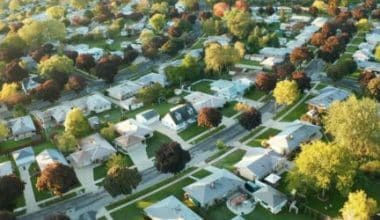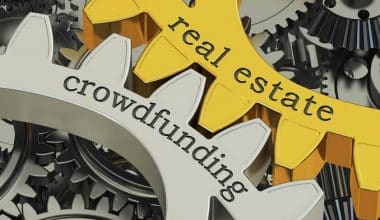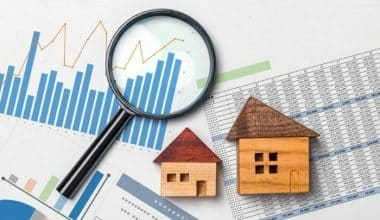Property investors and people who are interested in real estate find real estate development to be an interesting and profitable area. A real estate developer contributes to shaping our towns and cities. But how does one become a real estate developer? This article will help you every step of the way, whether you’re starting from scratch or want to change careers.
“What to remember—
- Real estate development means adding to or fixing up things on a piece of land to make it better.
- A real estate developer is a person or business that makes properties better by overseeing the planning, design, building, and sale.
- Real estate development can give you a possibly high return on your investment, give you control over your investment, help the community, diversify your portfolio, and be a part of a market that is generally stable.
- Property development comes with several risks, such as a high barrier to entry, financial risks, changes in the market, building delays, and the need to follow strict rules.
- Before you become a real estate developer, you should get an education, get your real estate license, work as an apprentice, make connections with other professionals, get money for your first project, and keep learning.
How To Become a Real Estate Developer
Real estate development is the act of constructing or remodeling multifamily properties to raise the value of the property.
Property development can begin with either empty land or buildings that are already there. Regardless, the land needs to be turned into spaces that can be used in a wide range of fields, from commercial and industrial complexes to residential and multifamily buildings.
When a piece of land is finished being developed, it is usually sold to an owner. But if the property is a single-family house, the buyer usually buys it directly.
#1. Education and Training
While there is no one-size-fits-all approach to becoming a real estate developer, there are a few crucial steps you may take to begin.
Firstly, a solid educational foundation is required. Many real estate developers have degrees in architecture, engineering, or construction management. A degree in business or finance is also advantageous, as real estate development frequently entails obtaining financing and managing significant budgets.
In addition to academic education, practical experience is essential. Look for internships or entry-level roles in the field to gain hands-on experience and begin networking.
#2. Developing Your Skills and Expanding Your Network
Building a strong network is vital in the competitive business of real estate development. Attend industry events and join organizations such as the Urban Land Institute or the National Association of Home Builders to network with other industry professionals.
Working with experienced real estate developers or construction companies might also help you gain experience. This might assist you in learning the ins and outs of the real estate industry as well as gaining the practical skills required to succeed.
#3. Overcoming Common Real Estate Development Obstacles
Real estate development is never an easy task. Expect to face a variety of challenges, ranging from zoning constraints to unforeseen costs. The key is to be strong and keep moving forward.
Working with a team of professionals is one method to overcome typical problems. Surround yourself with experts who can guide you through obstacles and provide useful insights.
#4. Breaking Into Real Estate Development With No Prior Experience
If you want to be a real estate developer but have no prior experience, there are still options. Consider taking real estate development classes, attending industry events, and finding mentoring or apprenticeship options with seasoned experts.
Remember that real estate development is a competitive business, and it may take years to gain the necessary skills and relationships.
#5. Obtaining Funding for Your Real Estate Development Projects
Securing funding is one of the most difficult aspects of real estate development. You can fund your initiatives using a variety of approaches, including:
- Equity finance: This is soliciting funds from investors in exchange for a part of the project’s ownership.
- Debt finance entails borrowing money to support a project and repaying it with interest.
- Crowdfunding This is the practice of soliciting modest sums of money from a large number of individuals using Internet platforms.
How To Become a Real Estate Developer with No Money
There are other ways to enter the area of real estate development besides the traditional path. Even without a lot of money, experience, or formal education, there are still alternative ways to succeed. Embracing these routes typically demands being resourceful, creative, and risk-taking.
One unorthodox way is to educate oneself. These days, anyone interested in real estate development may find several helpful materials on the internet. Some examples of this kind of content include forums, podcasts, online classes, and webinars where more seasoned programmers teach others the ropes. Although it demands self-control and initiative, self-education enables people to study at their own pace and concentrate on topics that truly captivate them.
Partnerships and joint ventures provide an additional, nontraditional route. A more seasoned developer or investor might be a good partner for an aspiring developer who has an idea for a project but doesn’t yet have the resources to make it a reality. The inexperienced developer may provide their skills, knowledge, and time in exchange for financial backing and mentoring from the more seasoned developer. Having an experienced developer invest in a potential project while an aspiring developer gets experience and a cut of the revenues can be a win-win situation.
Another nontraditional method that has grown in popularity presently is crowdfunding. This usually takes place online and entails soliciting small sums of money from many individuals. Crowdfunding provides an opportunity for ambitious developers to get the initial financing they need to launch their projects.
Buying and refurbishing a single-family home is a good example of a small-scale investment that some would-be developers make. With less initial investment and more time to obtain experience under one’s belt, this may be an easier entry point into the real estate development industry.
How To Become a Real Estate Developer Without a Degree
Being a real estate developer does not necessitate a particular degree; however, it can be advantageous to have a background in architecture, business, finance, or real estate. Knowing the ins and outs of the luxury sector, as well as the tastes and demands of high-end consumers, is also beneficial. Some possible steps in this direction include researching luxury real estate brokers, going to industry events, or studying luxury marketing.
Most people who want to be developers get degrees in something that has some connection to the real estate industry. A bachelor’s degree in a field such as civil engineering, business, finance, or real estate could suffice. A real estate developer must have a firm grasp of economics, finance, construction, and real estate; these courses lay the groundwork for that.
A bachelor’s degree isn’t the only need; several schools also provide real estate development certifications and specialized courses. Project management, sustainability, urban planning, and property law are just a few of the real estate development-specific topics covered in these programs. Additionally, many of these programs incorporate internships and capstone projects that allow students to gain experience in the industry.
It is common practice for prospective developers to obtain work experience in the field after finishing their degree. This kind of encounter might manifest in different ways. Many get their start in the industry as real estate brokers, where they gain invaluable knowledge of the local market and make valuable connections. On the other hand, other people want to learn the ins and outs of construction by working as construction managers. Gaining experience in the financial sector or the investment industry can also be useful, as these fields teach people how to analyze financial data and formulate sound investment plans.
NOTE: While a bachelor's degree isn't strictly necessary, it will provide you with a solid grounding in the field. Most developers earn business credentials, while no specific degree is required to work in the field of real estate development. A master's degree in real estate is an option for those seeking higher education; however, it is by no means required. Regardless, being able to browse and carry out developer jobs effectively is crucial.How Much Do Most Real Estate Developers Make?
In the US, a property developer can expect to earn an average of about $180,000 a year.
The exact salary range for real estate developers is highly variable, though, and could range from over $300,000 to over $104,000.
How Do I Become a Real Estate Developer in Canada?
Developers of residential and commercial real estate in Canada encounter unique possibilities and threats. Development projects may take longer and cost more than expected due to the country’s cooler weather and longer building season. In addition, developers should be familiar with the specific real estate rules and regulations of the nation, which could differ from one province to the next.
Meanwhile, there are several chances for commercial and residential growth in Canada due to the country’s robust economy and expanding population. Developers come from all over the globe to cities like Vancouver and Toronto because of their thriving real estate markets.
How Do I Get a Developer License?
A real estate license is the sole prerequisite to entering the field of property development. In fact, a license is required of developers in the majority of jurisdictions; therefore, you should research the requirements in your area before proceeding. Furthermore, enrolling in and completing a certification course is essential to obtaining a real estate license.
Who Is the Wealthiest Real Estate Developer?
As of August 2022, Donald Bren’s net worth of $16.2 billion made him the wealthiest real estate mogul in the world. His wealth increased by around $2 billion in only two years.
What Qualifications Do I Need to Be a Real Estate Agent?
Because of its complexity, real estate development calls for a wide range of expertise. A few of the most relevant qualifications and talents, as well as their significance and means of acquisition, are laid out below
- Knowledge of Construction
- Financial Analysis
- Project Management
- Understanding of Real Estate Laws and Regulations
- Negotiation
- Networking
- Risk Management
- Creativity
How long is the Course for Real Estate Agents?
The learning curve for entry-level beginners usually spans from one to two months. This timeline covers the completion of the requisite education.
Are Real Estate Agents in Demand in the US?
Overall employment of real estate brokers and sales agents is expected to expand by 3% from 2022 to 2032, roughly in line with the national average. Over the next decade, there are expected to be approximately 51,600 openings for real estate brokers and sales agents per year.
Getting into Real Estate Development
It takes a mix of education, work experience, and making connections to make it as a real estate developer. Lots of doors will open for you if you’re interested in sustainable development, high-end development, or a mix of the two. Having sufficient knowledge and abilities isn’t enough to be successful in real estate development; you also need to be creative, persistent, and willing to take some chances.
- Software Developer: Job Description and Salary
- Best-Paying Trade School Careers for 2024
- SOFTWARE DEVELOPER SALARY: What They Make in 2023
- What Is Self-Reliance in Business and How Does It Work?






